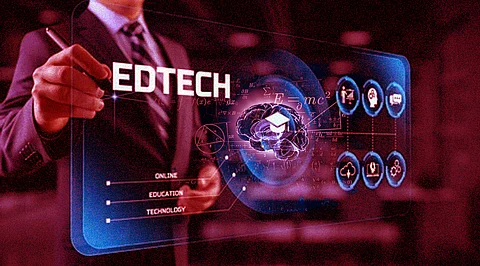
- Insights
- Cryptocurrencies
- Stocks
- White Papers
- Industry
- Geography
- Insights
- Cryptocurrencies
- Stocks
- White Papers
- Industry
- Geography


When it comes to the education landscape, the entire industry has undergone a rapid transformation in recent times. The next-gen technologies, including Artificial Intelligence and Machine learning, have portrayed their true potential in all industry verticals globally. The potential of AI is particularly visible in edtech, which has undergone a sea transformation during the pandemic years and has pushed the future-forward. The global edtech and smart classroom market are poised to reach US$3.68 billion by 2023 (as per MarketsandMarkets). AI technologies such as deep learning, machine learning, and NLP are applied to education and training software to improve performance and learning experience. AI technologies are implemented as per educational models such as the learner model, pedagogical model, and domain model to improve educational systems for better knowledge delivery and assessment.
The growing demand for AI in education is primarily driven by the advanced features and benefits offered by AI technology, attracting investments and fueling its adoption among organizations. Nowadays, classroom sizes are rapidly increasing, as a result, interactions between students and teachers are limited. AI technology is useful to analyze a huge number of data points for analyzing the performance of students. AI technology is transforming traditional educational processes by improving relationships between corporations and educational institutes. This technology sophisticates the processes of educational institutes.
Amongst the 241 respondents to the survey, 43.9% of people have agreed that artificial intelligence can make trial-and-error learning less intimidating. While other 43.9% think that AI might make trial-and-error learning less intimidating. However the rest 12.2% seemed to have a total opposite notion.

| Yes | 43.9% |
| Maybe | 43.9% |
| No | 12.2% |
Amongst the 241 respondents to the survey, the majority of people 63.4% have agreed that artificial intelligence can change how schools research, teach and support students. While, 31.7% think that AI might change how schools research, teach and support students. However the rest 4.9% seemed to have a total opposite notion.

| Yes | 63.4% |
| Maybe | 31.7% |
| No | 4.9% |
Amongst the 241 respondents to the survey, the majority of people 67.5% have agreed that artificial intelligence can change where students learn, who teaches them, and how they acquire basic skills. While, 27.5% think that AI might change where students learn, who teaches them, and how they acquire basic skills. However the rest 5% seemed to have a total opposite notion.

| Yes | 67.5% |
| Maybe | 27.5% |
| No | 5% |
Amongst the 241 respondents to the survey, the majority of people 60% have agreed that AI-driven programs can give students and educators helpful feedback. 37.5% think that AI-driven programs might give students and educators helpful feedback. However the rest 5% seemed to have a total opposite notion.

| Yes | 60% |
| Maybe | 37.5% |
| No | 2.5% |
